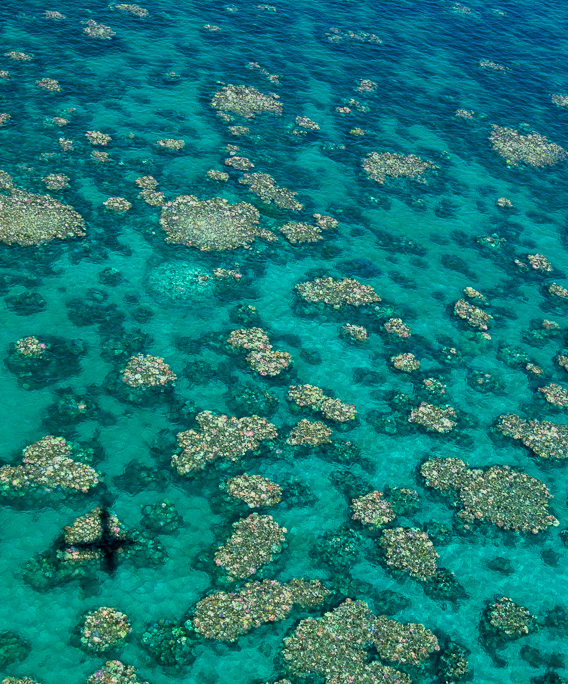Clock ticking on coral future
 New research suggests time is running out to save coral reefs.
New research suggests time is running out to save coral reefs.
Recent studies on the growth rates of coral reefs shows there is still a window of opportunity to save the world’s coral reefs - but it is closing.
Modern coral reef structures are a balance between a wide range of organisms that build reefs, not just corals. This includes coralline algae - a rock-hard type of algae that bind reefs together.
In a new paper, researchers calculated how coral reef growth is likely to react to ocean acidification and warming under three different climate-change carbon dioxide scenarios: low, medium and worst-case.
The findings suggest that under an intermediate emissions scenario, some reefs may even keep pace with sea-level rise by growing - but only for a short while.
“All reefs around the world will be eroding by the end of the century under the intermediate scenario,” said co-author Dr Scott Smithers, from Jame Cook University.
“This will obviously have serious implications for reefs, reef islands, as well as the people and other organisms depending upon coral reefs.”
The study also gives broader projections of ocean warming and acidification - and their interaction - on the net carbonate production of coral reefs.
Warming oceans bring more marine heatwaves, which cause mass coral bleaching. Ocean acidification affects the ability of calcifying corals to form their calcium carbonate skeletons, a process called ‘calcification’. Warming waters also reduce calcification.
The data in the study include net calcification, bioerosion and sediment dissolution rates measured or collated from 233 locations across 183 distinct reefs. Forty-nine per cent of the reefs were in the Atlantic Ocean, 39 per cent in the Indian Ocean and 11 per cent in the Pacific Ocean.
These were then modelled against three Intergovernmental Panel on Climate Change emissions scenarios for low, medium and high-impact outcomes on ocean warming and acidification for 2050 and 2100.
The projections show that even under the low-impact case, reefs will suffer severely reduced growth, or accretion, rates.
“While 63 per cent of reefs are projected to continue to accrete by 2100 under the low-impact pathway, 94 per cent will be eroding by 2050 under the worse-case scenario,” said lead author Dr Christopher Cornwall.
“And no reef will continue to accrete at rates matching projected sea-level rise under the medium and high-impact scenarios by 2100.”
Co-author Professor Morgan Pratchett said the results show that unless carbon dioxide emissions are drastically reduced the growth of coral reefs will be stunted.
“Our study shows changing environmental conditions challenge the growth of reef-building corals and other calcifying organisms, which are important in maintaining the structure of reef systems,” Prof Pratchett said.
“Saving coral reefs requires immediate and drastic reductions in global carbon emissions.
“The threat posed to coral reefs by climate change is already very apparent, based on recurrent episodes of mass coral bleaching.
“But changing environmental conditions will have other far-reaching consequences.”








 Print
Print